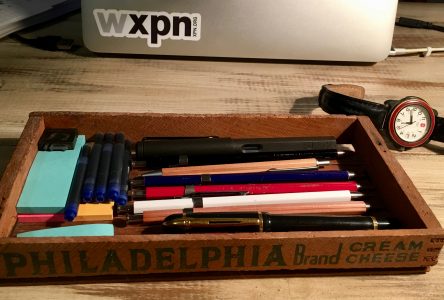In my essay, I am trying to show how Bartleby contrasts with Jenny Odell in his decision to retreat from society. Bartleby is a scribe and copies documents for his employer who is a lawyer. This takes place in the 19th century, so in fact, Bartleby is a human copy machine. At first he is enthusiastic and diligent about his work, but gradually he feels dehumanized and discouraged. When the lawyer asks him to do something, Bartleby consistently replies, “I would prefer not to.” The scribe falls victim to his own depressed attitude and does nothing to find happiness in his life. Eventually he is imprisoned and dies of starvation. I used this example to contrast his pessimistic, passive, and joyless mindset with that of Odell. While Odell finds fault with society and technology, she is also optimistic and an activist. She finds beauty and meaning in nature and realizes that people must be determined in their search for meaning in life. Instead of giving up and giving in, like Bartleby, Odell looks for opportunities to find a sense of purpose that will provide the satisfaction she is looking for.
The quote from Bartleby, “I would prefer not to” has made me think carefully about its real meaning. At first I cheered the scribe on, thinking that he was making a choice not to be dehumanized. However, the more I researched, reflected, and compared this quote to the message of Jenny Odell, the less sympathetic I felt for Bartleby. Life is made up of doing the things we do not like to do, as well as those we enjoy. To accept responsibility, even if it is not always pleasant, is coming to grips with one’s maturity. Growing up and becoming an adult involves work and assuming the consequences of one’s behavior. The tone of Bartleby is not just dark, but immature. By the time I finished writing this piece, I was almost annoyed with the scribe for his pessimistic views. Clearly, Melville’s character was depressed, and depression is a serious emotional illness. However, I also think that it is crucial for people to have a more positive attitude. This does not mean that I am not sympathetic, but I do feel that playing the role of a victim, saying “I prefer not to” cuts off a person’s options. We have to TRY things and be willing to have new experiences in order to grow. What if Babe Ruth had been lazy and uninspired when someone asked him to play baseball? What if he had said, “ I prefer not to?” To me, everyone should take a chance, maybe saying instead, “I may prefer not to right now, but I will do it anyway!”
https://ngs-4136.medium.com/basic-human-nature-944b1360aacc




